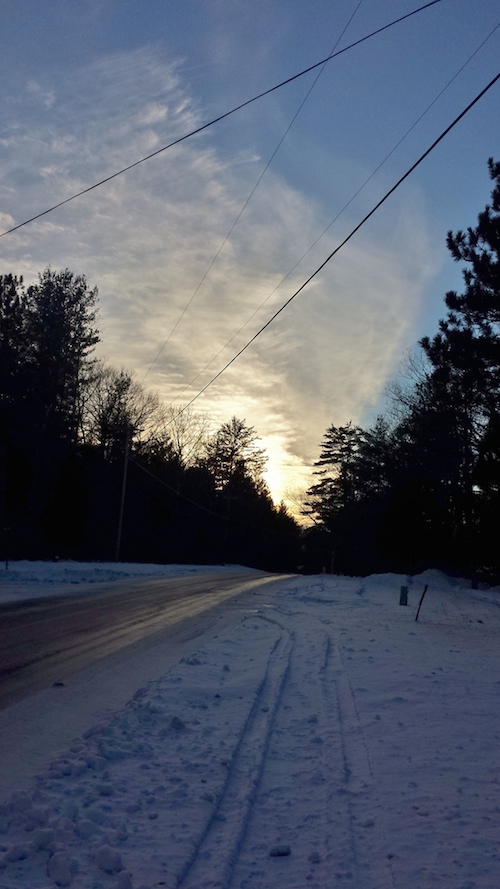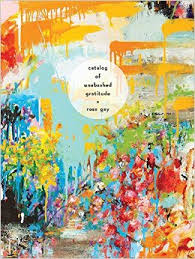Towards Something We've Known

You walk among the stars and are subject to the stars. You turn a corner and the air seems to turn with you, to bend around you. A personal experiment of the senses, when you wake suddenly one morning and pull your body out of the sheets, it’s as if the sheets are all of the earth rising with you. As if there is soil in the mattress and the boxspring is thick of clay, and you wonder if you haven’t simply been soaking in the wet dirt, the red yank of the earth, sown seed.
If there are two things I’d like you to have in mind as you read this post, the first is Galway Kinnell’s poem “Crying” where he writes “Crying only a little bit / is no use. You must cry / until your pillow is soaked!”
The second is Morgan Parker’s “If You Are Over Staying Woke.” In talking about her poem, Parker says “when I kind of reached an end, I wasn’t sure that it was the end. It had this momentum that made me feel like I could keep going for pages and pages.”
Thank god for momentum.
From the sown floor of your house, your basement, your bed, you emerge and with you, comes the chutes and stalk, pulling at dirt, and when you emerge, you read these first lines:
Tumbling through the
city in my
mind without once
looking up …
and maybe you have read that before. Maybe you read it once when you were stammering to explain why you were averting from people’s eyes, or others’ joy. Maybe you are susceptible to believing difficulty is personal not national, or emotional not epidemic, and so if you suspect the pain of others can be easily traced, or tracked, underground, you suspect it is like the buried root of an old tree, the way you suspect it emerges just under the concrete. And that it rumbles up like this.
I want to say that Ross Gay’s Catalog of Unabashed Gratitude is not just timely. This book, which so beautifully celebrates, no revels in, the poet's relationship to the earth, to his garden, to the people of his community, to family—I want to suggest in this national moment, it strikes me as breath. It is breath from that exhaustion that Morgan Parker is talking about. So many of us felt it. Feel it. The poet of color is not expected to breathe, and certainly not to breathe by being grateful, being thankful. Or if we do, it gets so easily confused with some sort of shuffling, mumbling glee at our circumstance. But this gratitude, the thankfulness of this book, steeped in a grounded mindfulness, in a sincerity some might call grit, Gratitude feels like the first time you open the window in spring. That first chilly air. The sun on the sill.

Our relationship to the world which flowers for us is so often tied up in deference, in a borrowed gaze. We can see it happening, but it is not ours. Or. We are black, we don’t do nature. Or. Nature wants in (how many of us have that damn cockroach poem whether or not we ever had roaches!). Nature as a sign of decay. Nature as something removed and threatening. Nature as that from which we are grateful so far from, to have come. You can substitute, anywhere you like, nature for joy. It’s the dirt and all that’s in it, that Gay revels in, and revelry is a gift. Consider these gorgeous sections from the long poem, “Sharing with the Ants”:
when by fluke or whim or
prayer I jostled the crotch-high
fig tree whose few fruit had been
scooped by our fat friends
the squirrels
but found shriveled and purple
into an almost testicular papoose …
beneath the fronds
of a few leaves
one stalwart fruit which
I immediately bit in half
only to find a small platoon of ants
twisting in the meat …
its pincers
slowing at my lips both
of our mouth sugared
and shining both of us …
The second poem, which follows the title poem in Margaret Walker’s famous For My People, is “Dark Blood.” Here, the Chicago poet, writes of her south “There were bizarre beginnings in old lands for the making of me. There were sugar sands and islands of fern and pearl … They nurtured my coming with wanderlust. I sucked fevers of adventure through my veins with my mother’s milk.”
I live in northern Michigan, and living here makes me acutely aware of how often I psychologically view this land as not-mine. Sometimes when I am walking here in these woods, I catch a fawn watching me. I don’t wonder, as I do with young children, if she is learning my skin tone. In the eyes of a non-human, I am outside that territory. I am grateful. But when I step back from the fallen white pine and birch that lie over the shallow ponds that fawn sips from—when I stand at the road and move from her, further out, when I can see that landscape as scene, it feels away from me. It’s no longer mine.
Whatever aspect of it, this land that we live on, we are always accounting for it. It’s a joyless act. In “Sorrow Home,” Walker affirmed her southern roots, as many have done, writing that they are “deeper than John Brown / or Nat Turner or Robert Lee.” It’s as if we must stand ground in the terrain of our native comfort, must insist that the “palm tree and banana leaf, mango and coconut, breadfruit and rubber trees know me.” It is against the contrary accusation that Walker insists: “I belong / with the smell of fresh pine, with the trail of coon, and / the spring growth of wild onion.”
Keep reading the poets connected to the land, connected to joy and thankfulness, and suddenly the tears which are national tears, which are tears that have been inside you, outside of you, feel less unheard, forgotten, ignored. Somehow, hope. Skin is the same skin it was yesterday, and you wonder what this could mean.
I watched Ross Gay read “Sharing with the Ants,” and "To the Mulberry Tree" at the late night, dark lit bar, Honey, for the Button Poetry/Organic Weapon Arts event this year during AWP. Under the low ceiling and passing of liquors, the poems soared, swirled, mixed with the poems about grief and sex and gender and our black boys and men dying at the hands of the police. As Parker suggests, it's not resolution.
In the five minutes I got to hang out with the poet, Rickey Laurentiis, on one of those evenings in Minneapolis, he said “We can’t forget that concrete is not the natural order. There is more grass than there is concrete in the world, and yet we think concrete is 'normal.' That’s what we’re supposed to believe.” He was talking about us. About people of color. We are the grass.
I keep thinking of the lines in another of Kinnell’s poems, “Vapor Trail Reflected in the Frog Pond,” while reading Gratitude. Here, Kinnell says “the flesh a man throws down in the sunshine / dogs shall eat / and the flesh that is upthrown in the air / shall be seized by birds.” These lines have resonated with me because they seem to be a sort of hope for eventuality, a kind of faith, not a terribly chipper one, but a sort of understanding about the cycle of life, and even joy. It resonated, actually, before I understood its biblical implications. In the bible, the one dying in the city is the one eaten by “the beasts of the earth.” The one dying in the field is eaten by birds.
Nothing quite prepares you for the emotional spectrum of Gratitude. By the time I get to the pivotal poem called “The Opening,” I am ruined. The poem is framed within a moment of the speaker, literally sitting beside himself (so speaker beside poet?) and consoling himself by pointing out the window and up, to something beyond the place they are both sitting. The poem is so critical for the turns it makes; please read it here, even before you read these small notes.
Now that you’ve read it, you see, what the speaker is pointing to. Isn’t this a kind of thing we want to do? To find an edge to our fingertips?
I want to tell everyone that the joy of a poem is that you can raise your hand, point your finger and not necessarily know what you are pointing at, or even towards. But if you can reach for something, something will be there. It is a kind of faith, and that if you follow the logic of poetry, you will know it as if you’ve always known it.
Kinnell ends the poem “Crying,” by saying:
And if people say “Hey,
what’s going on up there?”
“Ha ha!” sing back, “Happiness
was in the last tear.
I wept it. Ha ha!”
francine j. harris is originally from Detroit, Michigan, where she grew up in one of many neighborhoods...
Read Full Biography

